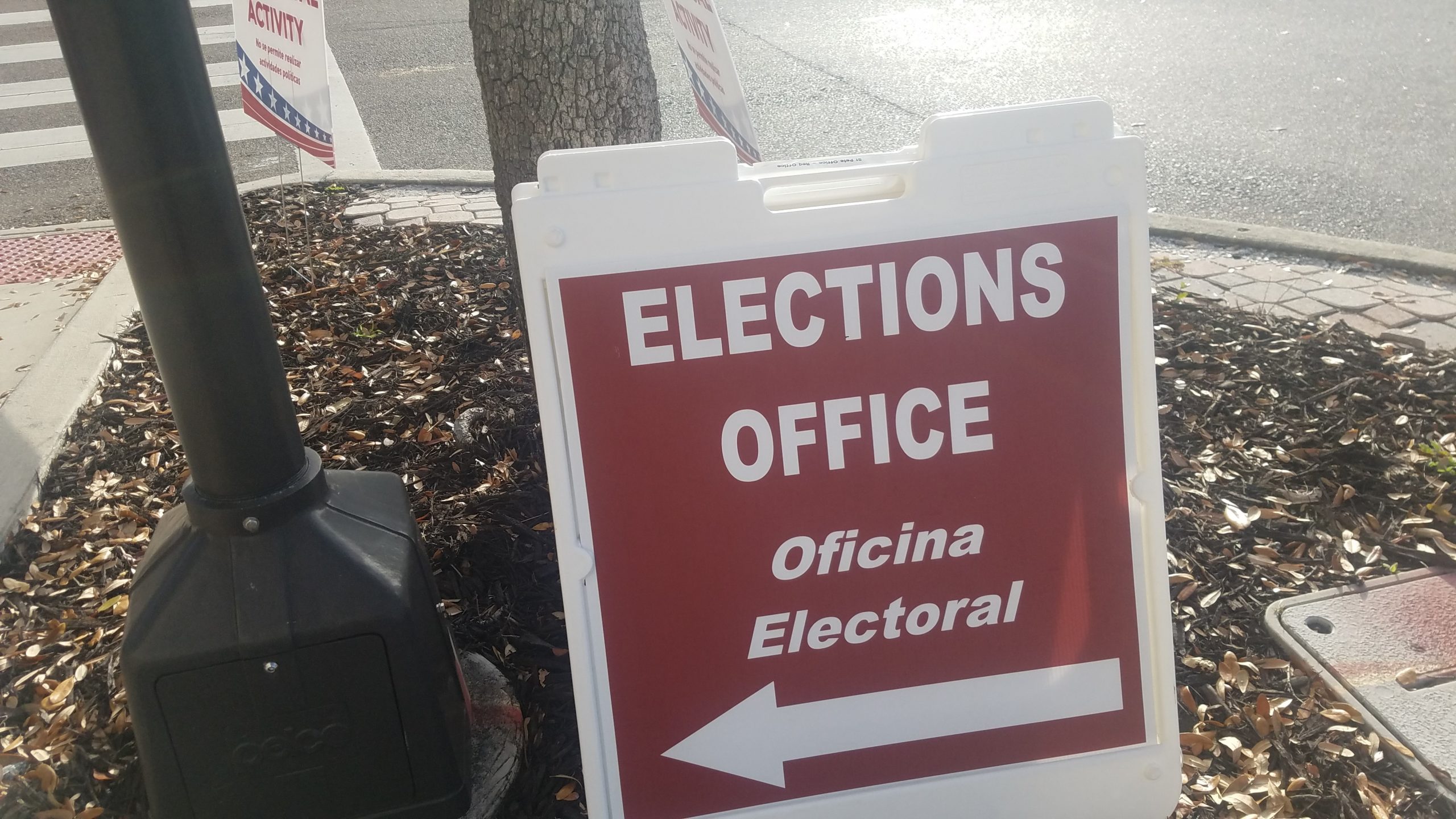
By Jim Saunders ©2023 The News Service of Florida
TALLAHASSEE — Voting rights groups want a full federal appeals court to take up a fight about whether a 2021 Florida elections law made changes that discriminated against Black voters.
Attorneys for the Florida NAACP and Florida Rising Together filed a 41-page petition last week asking the full 11th U.S. Circuit Court of Appeals to hear a challenge to the law. The request came after a divided panel of the Atlanta-based appeals court last month overturned much of a district judge’s ruling against the law.
The petition contended that errors “permeate” the three-judge panel’s decision, including that the majority did not properly consider evidence in the case.
“The stakes could not be higher: This case concerns whether the country’s third-largest state conducts free and fair elections uninhibited by what the district court found to be racially motivated voting restrictions,” the petition said.
Gov. Ron DeSantis and the Republican-controlled Legislature approved the law (SB 90) as GOP leaders across the country pushed to make voting changes after former President Donald Trump’s loss in 2020.
While Florida had a relatively smooth 2020 election, Republican lawmakers argued the changes were necessary to make the state’s elections more secure. Opponents, however, argued the changes were targeted, at least in part, at Black voters, who overwhelmingly support Democratic candidates.
The law imposed new restrictions on mail-in voting and voter registration groups and prohibited people from giving snacks and drinks to voters waiting in line to cast ballots.
Chief U.S. District Judge Mark Walker in March 2022 issued a 288-page decision that blocked parts of the law.
“In sum, this court concludes that to the extent promoting voter confidence or preventing fraud may have motivated the Legislature in part, this court finds that the Legislature passed SB 90 with the intent to restructure Florida’s election system in ways that favor the Republican Party over the Democratic Party,” Walker, who is based in Tallahassee, wrote. “This court further finds that, to advance the Legislature’s main goal of favoring Republicans over Democrats, the Legislature enacted some of SB 90’s provisions with the intent to target Black voters because of their propensity to favor Democratic candidates.”
But last month’s 2-1 decision by the appeals-court panel said Walker’s decision “does not withstand examination.”
“The district court relied on fatally flawed statistical analyses, out-of-context statements by individual legislators, and legal premises that do not follow our precedents,” appeals-court Chief Judge William Pryor wrote in a 79-page decision joined by Judge Britt Grant. “On the contrary, examining the record reveals that the finding of intentional discrimination rests on hardly any evidence.”
But Judge Jill Pryor, in a dissenting opinion, wrote that Walker, in a “thorough and well-reasoned order, committed no reversible error.”
The law, for example, placed additional restrictions on drop boxes used for vote-by-mail ballots. It required boxes to be manned by employees of supervisors of elections and limited their use to early-voting hours. Democrats far outnumbered Republicans in casting vote-by-mail ballots in 2020.
As another example, the law required voter registration groups to return completed applications to elections supervisors in the counties where applicants live and imposed a 14-day deadline for submitting the forms. Opponents of the law contend minority voters more heavily rely on “third party” voter registration groups.
The majority of the appeals-court panel found that such parts of the law were not intended to discriminate against Black and Hispanic voters and did not violate the federal Voting Rights Act and the U.S. Constitution.
Last week’s request for what is known as an “en banc” hearing by the full appeals court came after lawmakers in late April passed a bill that included placing further restrictions on voter-registration organizations. The Legislature on Tuesday formally sent the bill (SB 7050) to DeSantis, who is expected to sign it.
Leave a Reply









